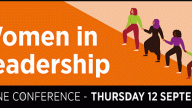Building a positive culture, Management & leadership, Governance
Agreement versus alignment
Forget about trying to reach agreement, or even consensus. Aim for alignment. Read more from Debra Allcock Tyler below.
Human beings are complex, strange creatures, largely oblivious to what is going on in the inner workings of our mind. We aspire to be thoughtful and logical in our thinking and decision making – but we wildly underestimate our human capacity for obstinacy, how fragile our egos are and how our emotions can so often dictate our decisions.
And in my experience a plethora of facts don’t generally move people from a position they’ve taken.
We subconsciously tend to associate our sense of self with decisions we make or positions we take. And when they are intertwined like that it makes it much harder to change our thinking, ergo our minds, because to change what we have said out loud we believe means we are saying that we need to change who we are.
It’s a bit like associating your sense of self with what you wear. What you wear can of course be an expression of identity – but it’s not you. You can choose different outfits for different occasions. You wouldn’t wear a bikini to a funeral or a suit to the beach. Clothes are simply an expression of what you’re trying to say in that moment – and what you’re trying to say changes depending on the context.
We find it harder to change our ‘attire’ when it comes to our thinking. And all of this is happening subconsciously. It’s rare that we consciously identify our sense of self with a decision on say, what our levels of reserves should be, but very often that is what is happening even if we don’t realise it. If people disagree with us it can feel like an attack on who we are, our competence, experience and knowledge, even if all it really is is someone seeing a situation differently to us.
Which is why we sometimes find ourselves in a stubborn loop of argument or constantly banging on about a decision we didn’t agree with, or abstaining, or saying we want it recorded in the minutes that we didn’t agree.
This is where language can really help. Firstly, enable dissent by framing it as different perspectives rather than who is right and who is wrong. It’s not a battle – it’s a sharing of thinking. That way it’s easier for folk to move because they’ve heard a different perspective not because they have admit they might be wrong which is incredibly hard for human beings to do.
If we make it clear that we don’t expect everyone to agree but we want to align behind a particular course of action to move the charity forward, it makes it much easier for folk to accept.
So on your agendas don’t put down an item as ‘for discussion and agreement’ – say ‘for perspectives and alignment’ for example, and then you’re already framing the discussion in an open way not a win/lose way.
By doing this you’re emphasising that you’re not asking anyone to change their minds and agree. You’re saying that you’ve had the conversation, you’ve heard all the views, now time to make a decision. No-one has to agree, but can they align behind what you are deciding?
Doing that means you’re not asking folk to say they were wrong – but allowing them to demonstrate that although they may not fully agree they can get behind the action proposed.
So forget about trying to reach agreement, or even consensus. Aim for alignment. It won’t always work, but you stand a better chance of making a decision and moving things on. Try it and see what happens.
Take a look below at some of our related upcoming conferences and publications.



